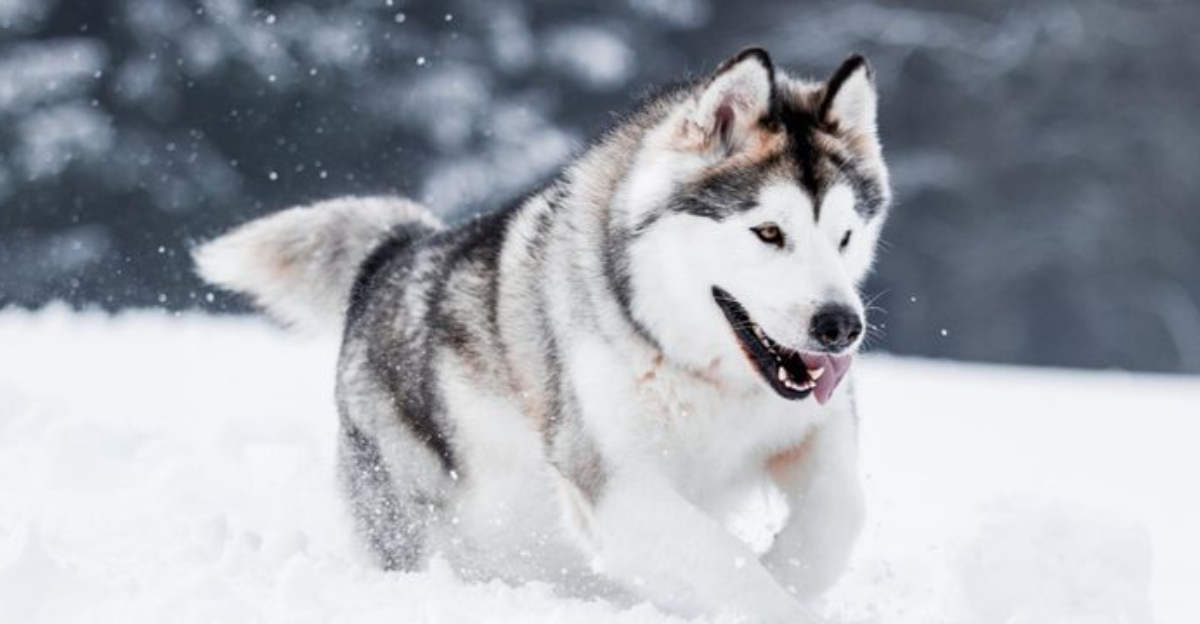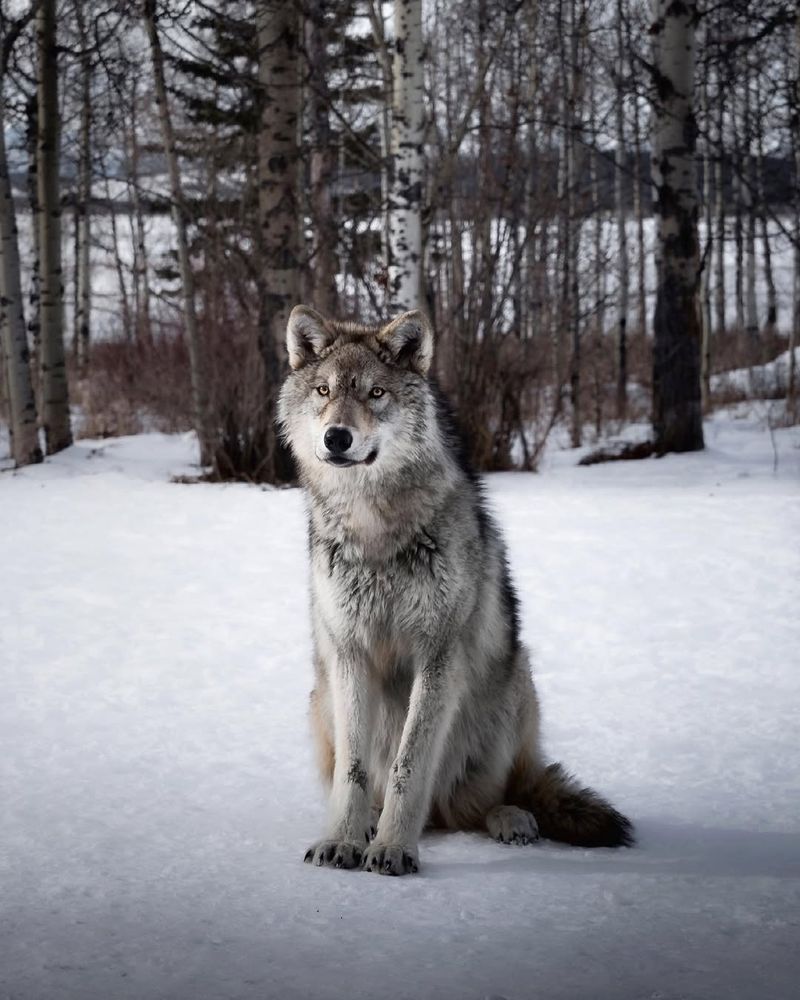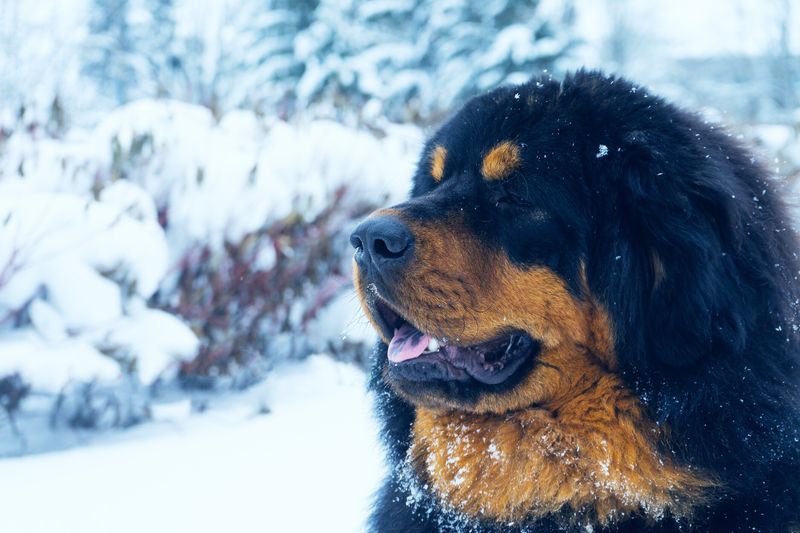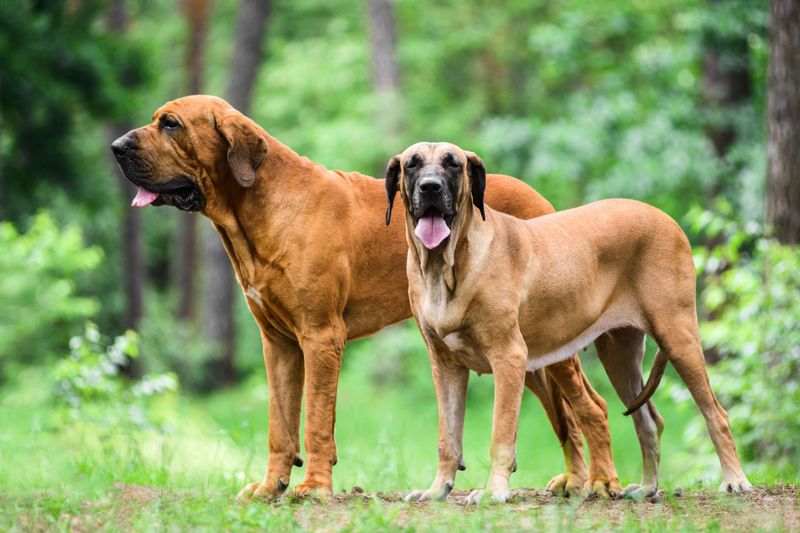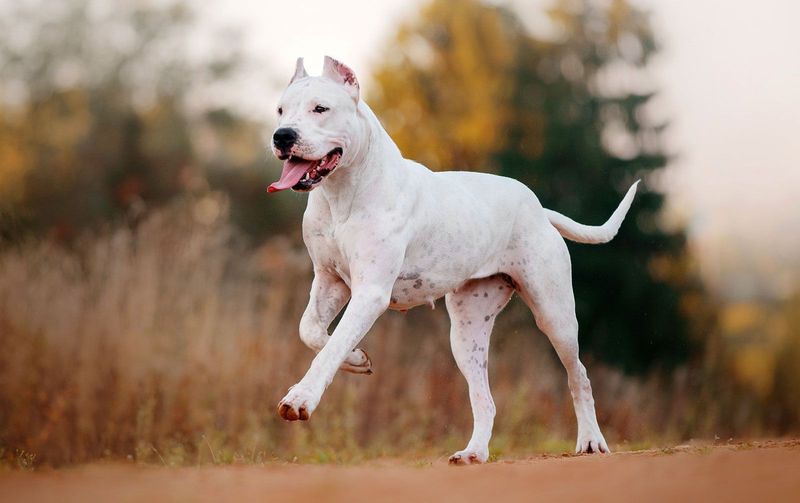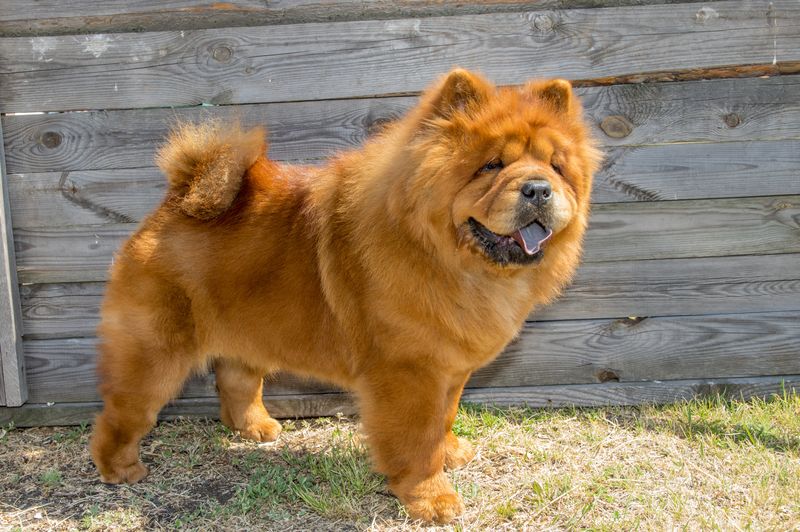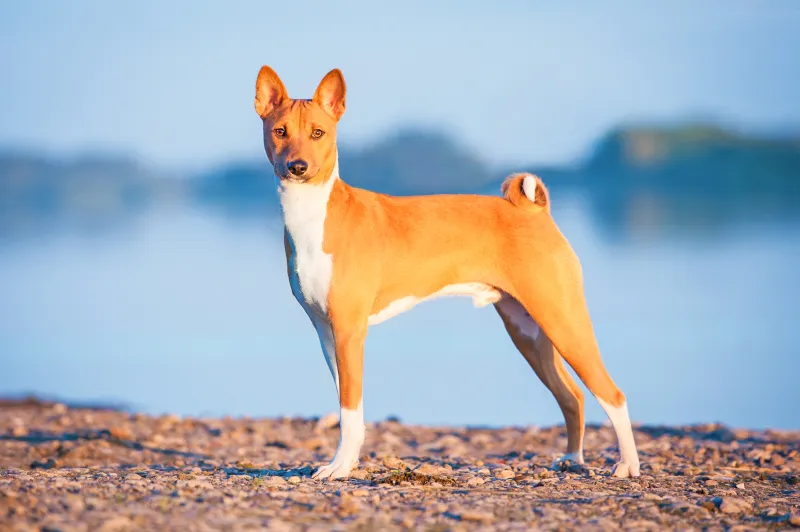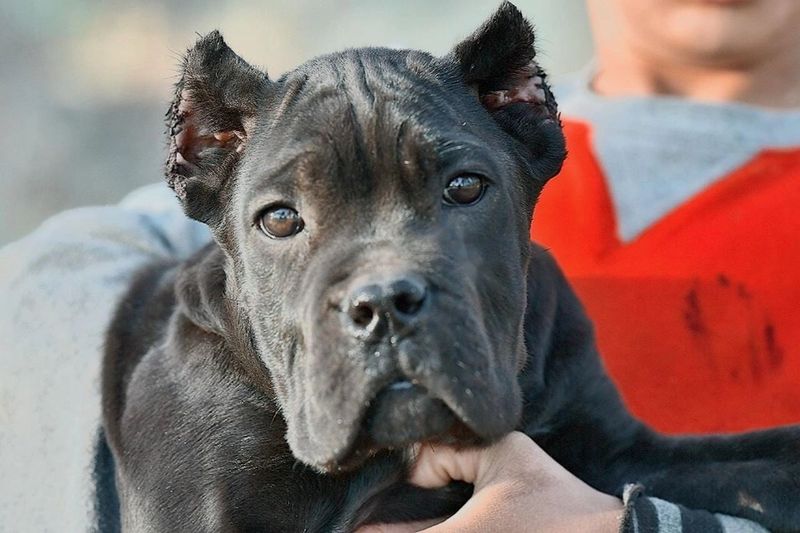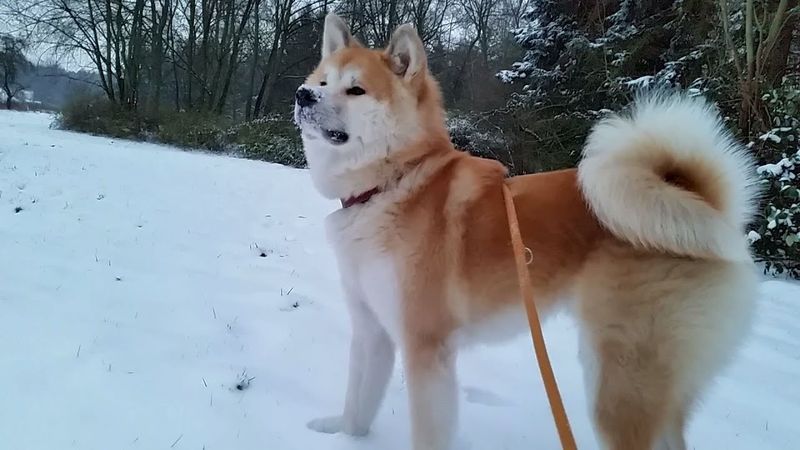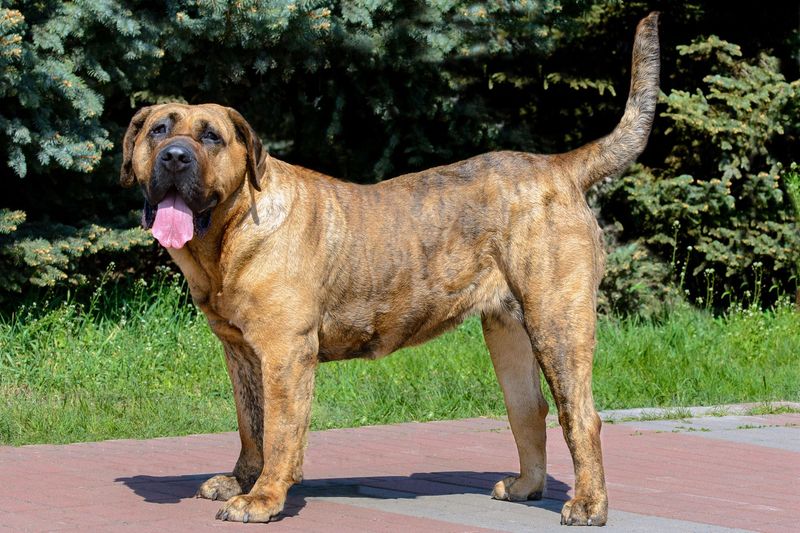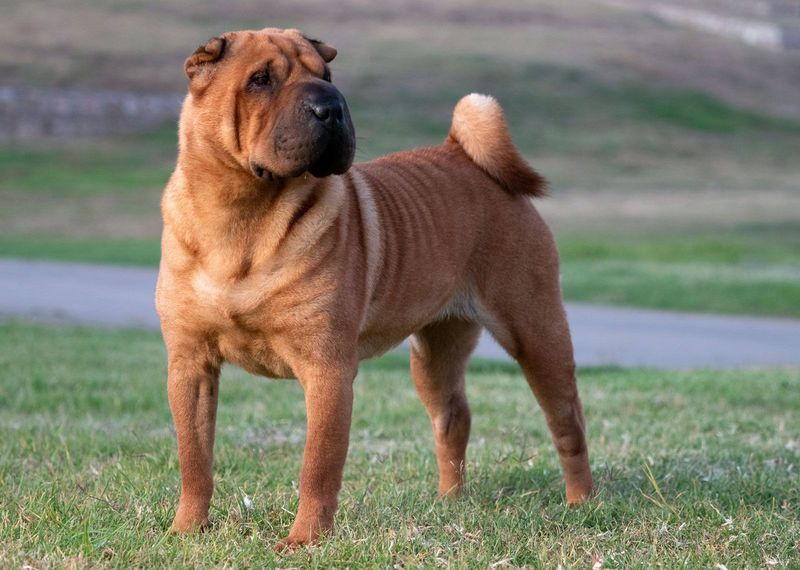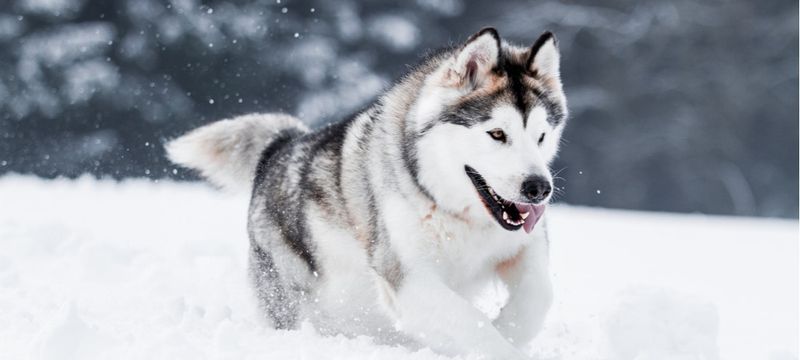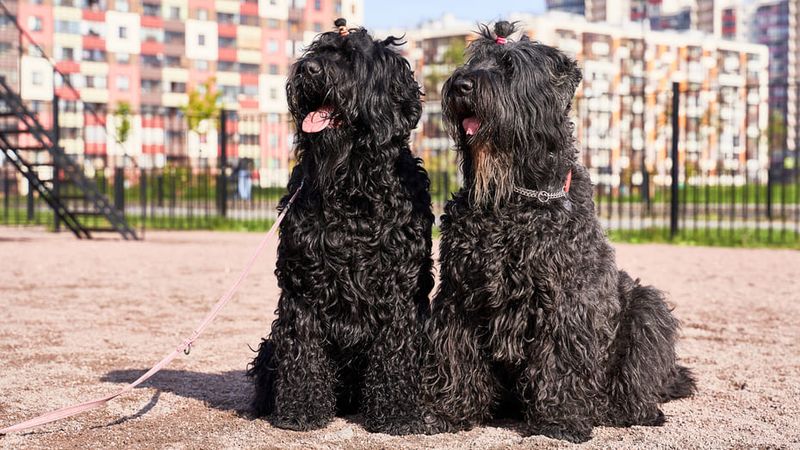While dogs are often considered man’s best friend, not all breeds are suitable for domestic living. Some dog breeds, despite their intriguing appearances and fascinating histories, have traits that make them challenging pets. From their natural instincts to particular needs, these breeds require specific environments or handling, making them unsuitable for the average household. In this article, we explore 12 dog breeds that you might want to admire from afar rather than bringing home.
Wolf Hybrid
Wolf hybrids are fascinating but pose significant challenges as pets. They inherit wild instincts from their wolf ancestors, which makes them unpredictable and sometimes dangerous in a domestic setting. These hybrids require vast spaces to roam and a very experienced handler. They are not suited for families with children or other pets. Moreover, many regions have strict laws regarding their ownership due to safety concerns. Their dietary needs also differ from typical dogs, requiring raw and specific diets. If you’re captivated by wolves, consider supporting conservation efforts instead.
Tibetan Mastiff
Tibetan Mastiffs are majestic, with their lion-like manes, but they are not easy pets. Bred to guard livestock, they are independent and territorial. Their protective nature makes them wary of strangers, and they might not get along well with other animals. These dogs require a spacious environment and a lot of physical activity. Without proper training and socialization, their strong will can become challenging. Additionally, their thick fur requires regular grooming. If you love this breed, consider dedicating time to their training and understanding their complex nature.
Fila Brasileiro
The Fila Brasileiro is known for its loyalty but also its aggressive guarding instincts. Bred in Brazil for hunting and guarding livestock, this breed is not recommended for inexperienced dog owners. Their size and strength can be overwhelming, and they require consistent training. They are known for their distrust of strangers and can react aggressively. Due to these traits, they are banned in several countries. If intrigued by their history, learning about their role in Brazilian culture might be a safer option than ownership.
Dogo Argentino
Dogo Argentino is a powerful breed originally developed for big game hunting. Their strength and tenacity make them unsuitable for novice owners. They require firm, consistent training and socialization from an early age. These dogs can be territorial and may not cohabit well with other pets. Despite their affectionate nature towards family, their strong prey drive poses challenges in uncontrolled environments. Legal restrictions on ownership exist in some areas due to their history as fighting dogs. Admire their grace and strength through sporting events or breed clubs instead.
Chow Chow
Chow Chows are known for their unique appearance and aloof nature. This ancient breed requires an owner who understands its independent mind and strong-willed character. They can be standoffish and may develop aggressive traits without proper socialization. Their distinctive coats demand regular grooming, and they can be prone to health issues. They are better suited to a calm, patient household without young children. If you’re drawn to their fascinating history, consider studying their cultural significance in China rather than adopting one as a pet.
Basenji
The Basenji, often called the “barkless dog,” is known for its intelligence and energy. Originating from Africa, this breed retains many primitive traits, making them a challenging choice for novice dog owners. They are highly intelligent and curious, which can lead to mischievous behavior if not adequately occupied. These dogs require a lot of physical exercise and mental stimulation. They are not entirely silent; instead, they produce unique vocalizations. Their independent nature means they respond poorly to traditional obedience training. Consider experiencing their agility in dog sports instead.
Cane Corso
The Cane Corso is a powerful Italian breed known for its protective nature. They are loyal and intelligent, but their size and strength require an experienced handler. Without proper training and socialization, they can become aggressive towards strangers. These dogs thrive in a structured environment with consistent leadership. They require regular physical exercise and mental challenges to stay healthy and happy. Not recommended for families with small children due to their sheer size. Explore their historical significance in guarding Italian properties if you admire this breed.
Akita Inu
Akita Inu is a dignified and courageous breed from Japan, known for its loyalty. However, they can be challenging for first-time dog owners due to their independent and dominant nature. This breed requires firm and consistent training from a young age. They are protective and may not tolerate other animals well. Akitas need a spacious environment and regular mental stimulation to prevent boredom. Their thick coat requires regular grooming. If you’re interested in this breed, consider learning about their cultural role in Japan rather than ownership.
Presa Canario
The Presa Canario is known for its strength and confidence. Originating from the Canary Islands, this breed was developed for working with livestock. They require an assertive owner who can provide firm and consistent training. Without it, they can become dominant and potentially aggressive. Presa Canarios need a lot of physical exercise and mental stimulation. They are not suitable for families with small children due to their size and power. If you’re drawn to their heritage, consider learning about their historical roles rather than adopting one as a pet.
Shar Pei
Shar Peis are distinctive with their wrinkled skin and scowling expression. Historically used as guard dogs, they possess a strong independent streak. This breed requires early socialization and firm training. They can be wary of strangers and may be aggressive if not properly managed. Shar Peis are prone to various skin and health issues, necessitating regular veterinary care. They are best suited to experienced dog owners who can dedicate time to their unique needs. If you’re intrigued by their appearance, consider supporting Shar Pei rescues instead of ownership.
Alaskan Malamute
Alaskan Malamutes are admired for their strength and endurance. Bred for sledding, they need lots of physical activity and mental stimulation. These dogs are not suited for small apartments or inactive families. Their independent nature requires an experienced owner for proper leadership. Malamutes have a strong prey drive and may not get along well with other animals. Their thick coat demands regular grooming, and they are prone to shedding. If you’re fascinated by their capabilities, consider participating in sledding activities or supporting Arctic breed rescues.
Russian Black Terrier
Russian Black Terriers are robust and intelligent, bred for military purposes. They are protective and need an experienced owner to manage their strong will. This breed requires consistent training and socialization. Without this, they can develop aggressive tendencies. They need a lot of physical exercise and mental challenges to stay satisfied. These dogs are not suitable for small living spaces due to their size. If drawn to their history, consider learning about their role in Russian military service instead of ownership.
